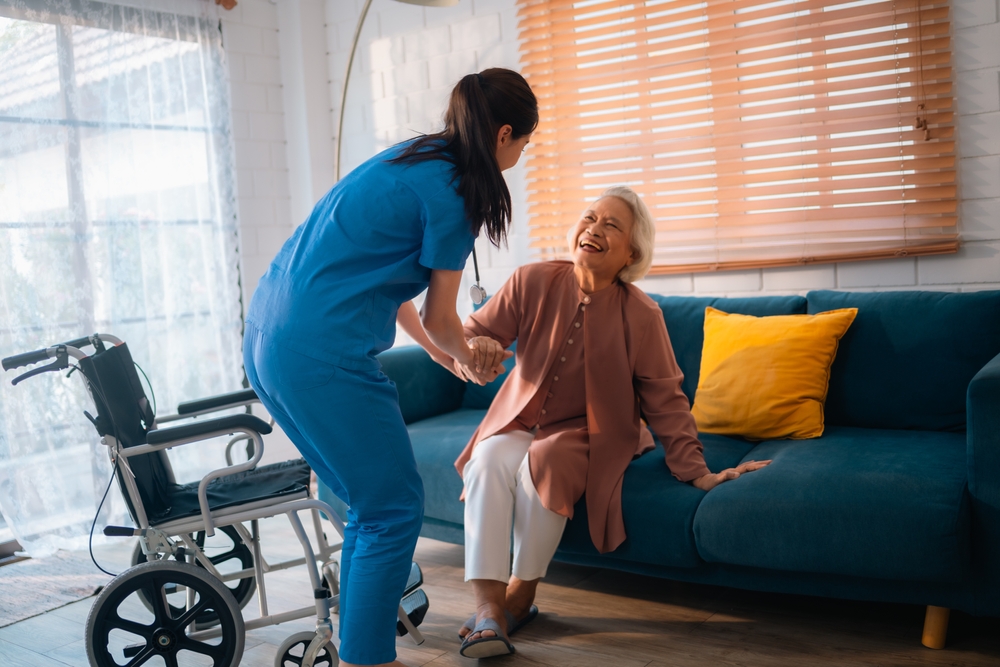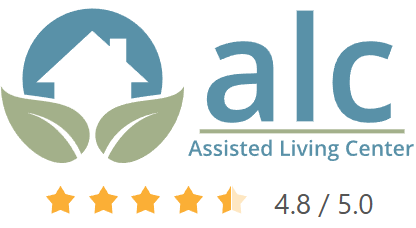The loss of physical and cognitive ability and loss of independence as a whole can be tough for aging individuals to cope with. Getting the help of trained professionals for your in-home care needs in Los Angeles can ease the burden of everyone involved and put your aging loved one back on the recovery path. In-home care providers offer significant improvements to elderly people’s life satisfaction by providing both practical and emotional support.
What is the meaning of in-home support services?

The purpose of in-home support services is to assist the elderly in their daily lives. These services are the key to maintaining the independence and quality of life of elderly individuals who want to continue living at home.
In-home support services are designed to be flexible and tailored to meet the specific needs of each individual. The goal is to provide the necessary support to help the elderly maintain their independence and continue living in their own homes for as long as possible.
The types of in-home support services can range from non-medical companionship and assistance with daily activities to comprehensive medical care. In-home care could also take the form of 24-hour specialized professional care.
What is non-medical in-home care?
Non-medical in-home care, sometimes referred to as social, domiciliary, or custodial care, is an essential service for many aging individuals. As the name suggests, it does not include medical support but focuses on helping with everyday tasks and providing companionship.
Many in-home care professionals have undergone specialized training. They can undertake different tasks depending on their level of certification. Caregivers offer assistance with activities such as bathing, dressing, meal preparation, and light housekeeping. They also provide much-needed companionship and emotional support, which most elderly need.
In-home senior care providers often assume the role of a surrogate friend and caregiver when loved ones or family members cannot be present for their beloved elderly loved one. It’s particularly beneficial for family members who live far away from their elderly relatives. Regardless of the distance, you can do your part by finding someone to prepare their meals and keep them company.
Knowing that your relative is getting the attention they need, much longed-for companionship, and the care they require to stay safely and independently at home can provide peace of mind. This is especially important if your elderly loved one refuses to eat regularly or has issues with basic daily tasks. The caregiver will also communicate the senior’s condition regularly to the family and update them on their physical, social, and emotional well-being.
What are companion care services?
Loneliness is one of the most common issues seniors face. The main focus of companion care is providing emotional support and companionship. This can include talking to them about topics they find interesting, playing games, or accompanying them to appointments and social events. Companion care is especially important for the elderly who live alone.
Companion care focuses on the senior’s emotional and mental health. The responsibility of a companion is to encourage your elderly loved one to take part in activities that promote mental stimulation and socialization, which are crucial for preventing loneliness and depression.
Caregivers may also perform light housekeeping tasks, such as:
- Washing the dishes
- Mopping and vacuuming
- Doing laundry and ironing
- Light cleaning
- Watering plants
- Maintaining pets
- Grocery shopping
- Preparing meals
- Recreational activities
- Running errands
- Changing the bed linens
- Taking the senior to appointments
What is attendant care?
Attendant care services go a step beyond companion care by offering hands-on assistance with personal hygiene and other daily activities. Assisting with daily living is probably the most common home care service for the elderly.
Some examples of attendant care services are:
- Bathing
- Hair washing and shaving
- Help with dressing
- Medication reminders
- Transferring
- Toileting assistance
- Other personal care needs
Attendant care services are suitable for aging individuals who need more support to manage their daily routines. They can get the help they need while maintaining their dignity and independence.
When you hire a professional senior care provider, family members can spend more quality time with their elderly relatives. Otherwise, a substantial amount of time is spent running errands and providing practical help rather than being a real companion to the senior.
Senior care can keep the elderly individual in their home longer as it gives them more independence and the familiar comfort of home. It eliminates the need for having to move them to a nursing home since all their needs are being met.
What is in-home medical care?

Seniors often have chronic health issues that need to be addressed by a licensed healthcare professional. Medical in-home care involves medical services provided by professionals like nurses, therapists, and physiotherapists. It can include wound care, physical therapy, and medication management. It’s especially helpful for aging individuals who are recovering from surgery or have chronic conditions.
What does medical home care include?
Depending on the individual’s needs, medical home care can include various types of support such as:
Nurse-supported care
District nurses typically visit people after they are discharged from the hospital or if they have a long-term medical condition that requires ongoing nursing care. The nurse teaches the patient how to take care of themselves and shows their family how to support the patient. This nurse also checks to see if the patient needs the help of a specialist.
Occupational therapy
Occupational therapists help aging individuals who have difficulty performing daily tasks due to health issues. They work with the patient to discover ways to make life easier and adapt their home environment to meet their needs.
Physiotherapy
Physiotherapy may also be a crucial part of medical in-home care. A physiotherapist will visit the elderly person’s home if a medical condition, disability, or injury restricts their movement or normal bodily actions. A physiotherapist helps your senior relative recover and gives advice on how to prevent recurrence or worsening of their symptoms.
What is the most requested support service for the elderly?
When it comes to support services for the elderly, home care stands out as the most frequently requested option. This is because it’s adaptable to the unique needs of each individual. Whether it’s assistance with daily activities, specialized help, or a combination of both, home care provides a tailored solution within the familiar environment of one’s living space.
1. A holistic approach
This approach encompasses both practical and emotional aspects of care. It addresses essential needs such as meal preparation, personal hygiene, and medication management, while also providing companionship and emotional support. When we give the elderly an opportunity to age in place, it promotes autonomy and dignity while ensuring their well-being. This can, therefore, be a great solution for the elderly who have a resistance to care.
2. Personalized care plans
One of the key appeals of home care is its personalized nature. Professionals meticulously craft the plans to address the specific requirements of each individual, enhancing their quality of life and allowing them to remain in their preferred surroundings. This customized approach is the key to improving overall well-being and fostering a sense of independence.
3. Affordability and family involvement
In addition to its comprehensive nature, home care is often a more financially viable option compared to alternatives like residential care facilities. This makes it an attractive choice for families looking for high-quality care at an affordable price. The ability to provide excellent care within a reasonable budget is a significant advantage for many.
It also encourages active participation from family members in the process. They can collaborate in decision-making and feel reassured knowing their loved one is receiving attentive assistance. This involvement fosters a sense of shared responsibility and peace of mind for all parties involved.
4. Adaptability and preventive care
Adaptability is another compelling factor. As the needs of the elderly evolve over time, the plans can be adjusted accordingly. Whether your aging loved one requires increased assistance or a modified approach, home care can readily adapt to accommodate these changes. This flexibility ensures that care remains relevant and effective as they age.
Furthermore, it plays an important role in preventive healthcare. Regular monitoring and timely interventions can identify and address potential health issues before they escalate. This proactive approach reduces the likelihood of hospitalizations and contributes to the senior’s overall well-being.
5. Social engagement and mental stimulation
It also extends beyond practical assistance. It often includes activities designed to promote social engagement and mental stimulation. These activities are vital in combating isolation and maintaining cognitive function, both of which are necessary for healthy aging.
Where can I find reliable senior care in Los Angeles?

Look no further than A Better Way In Home Care. We’re here to connect you to background-checked, experienced, and qualified caregivers for your elderly loved one. Whether you need focused in-home care in Beverly Hills or other parts of LA County, we’re here to find it for you, which is just one of the many advantages you get from relying on our referral agency.
You can build trust with your elderly loved one by respecting their wishes and enabling them to live in the familiar comfort of their own home, which can feel significantly more empowering for them. Reach out to us today and see what we can do for you!








